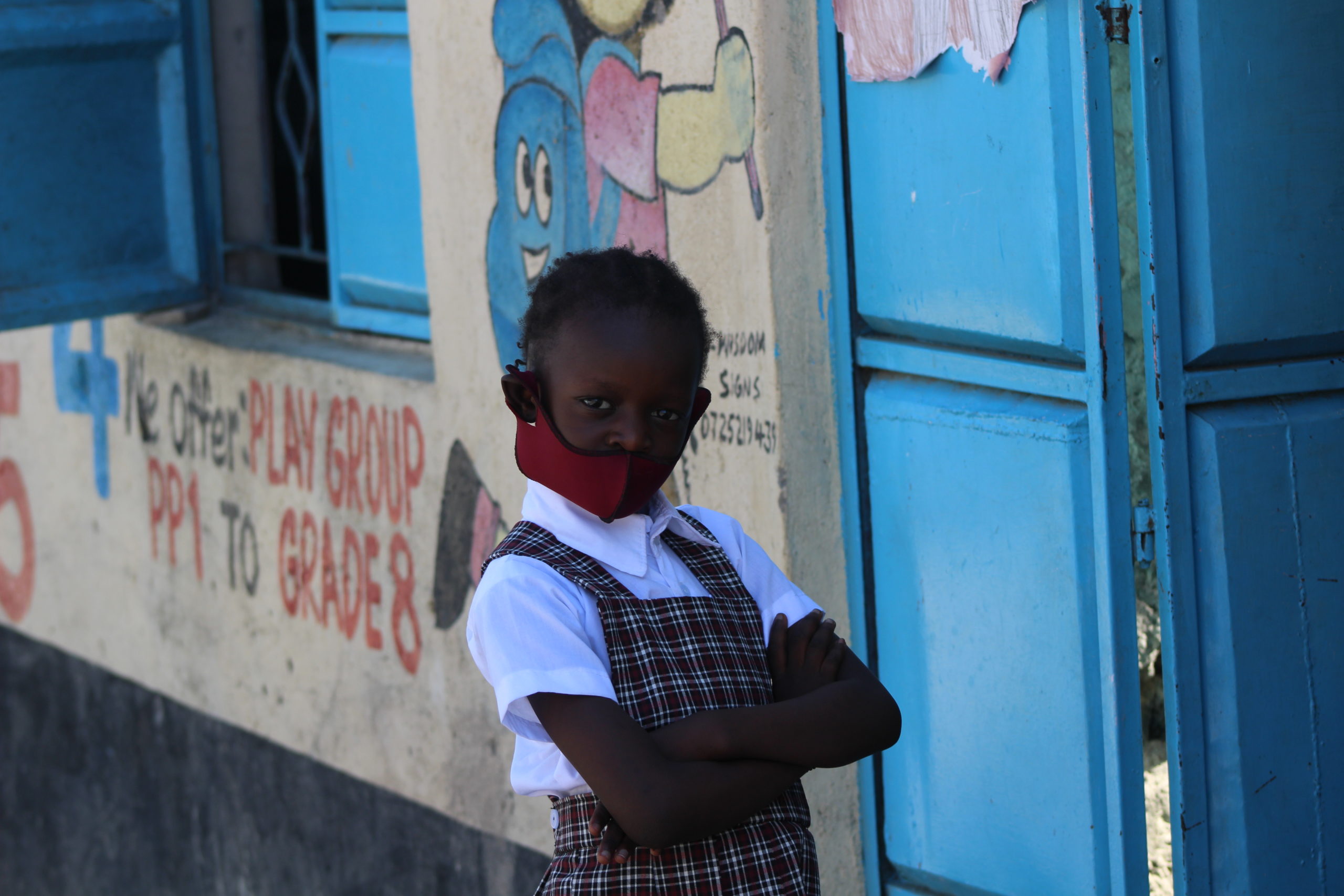As education systems react to the COVID-19 pandemic, we know that girls are at greater risk of suffering education losses as a result of school closures. According to the Malala Fund report, “Girls’ Education and COVID-19,” while most systems were focused on remote learning strategies, girls had differential access to technology and other learning resources to continue learning. We also know that girls are less likely to return to school post-COVID as there are indications of greater teen pregnancies and marriage, increased child care responsibilities and parents are more likely to invest in boys’ education.
 Dignitas has partnered with Global School Leaders and Alokit to equip school leaders with important mindsets, competencies and strategies intended to help them reach all girls, and ensure learning and well-being gets back on track.
Dignitas has partnered with Global School Leaders and Alokit to equip school leaders with important mindsets, competencies and strategies intended to help them reach all girls, and ensure learning and well-being gets back on track.
Unfortunately, school leaders have been an overlooked lever in efforts to improve girls’ education. While there are a lot of initiatives and research on teachers and their influence on girls’ education, there has been little focus on school leaders, both programmatically and in research. To reduce the likelihood of adverse effects faced by girls, we need leadership in schools who are sensitive to, and trained in, issues related to girls’ education.
Dignitas has been partnering with 100 schools across Nairobi, Laikipia and Kajiado since October 2020 with a focus on getting all girls back to school. We’ve spoken to school leaders, teachers, parents and girls themselves. Here are some of our insights so far:
- Traditional, patriarchal mindsets persist and are often detrimental to the learning and thriving of girls. Our baseline study demonstrated that 31% of the School Leaders interviewed agreed that ‘a man should have the final word about decisions in his home’. Similarly, 23% of the School Leaders agreed that ‘a woman’s most important role is being a good homemaker’. Further, 8% of the School Leaders agreed that ‘a woman should tolerate violence to keep her family together’.
 The education of boys is still prioritised over that of girls. Our baseline study showed that 8% of school leaders believed ‘wives should be less educated than their husbands’, and ‘boys should get more opportunities/resources for education’. Our baseline study also revealed that 48% of girls were doing 3 or more hours of housework daily during school closures, while only (33%) of girls were spending 1-2 hours doing school work. 18% of girls interviewed did not have a routine that allowed for daily studies.
The education of boys is still prioritised over that of girls. Our baseline study showed that 8% of school leaders believed ‘wives should be less educated than their husbands’, and ‘boys should get more opportunities/resources for education’. Our baseline study also revealed that 48% of girls were doing 3 or more hours of housework daily during school closures, while only (33%) of girls were spending 1-2 hours doing school work. 18% of girls interviewed did not have a routine that allowed for daily studies.- Early marriage, FGM (Female Genital Mutilation) and early pregnancy all persist as barriers to girls’ education, with the situation worsened by COVID-19
The Dignitas team, reflecting on insights from Project Kanya and previous Stawisha cohorts of school partners, including our learning from our COVID-19 response work in 2020, now point to three areas worth further investigation and investment:
- School Leaders need to understand, and work to address, barriers to girls’ enrollment and re-enrollment. We found that school leaders often made assumptions about these barriers, and that these were misaligned with parents’ sentiments. For school leaders, parents and girls to work together to remove barriers to education, there has to be a shared understanding about what those barriers are and a shared goal to see those barriers removed.
- School Leaders need to build school and classroom culture in which girls are safe and valued. In the 2017 external evaluation of our work, school and classroom culture was highlighted as one of three critical levers that transform student learning opportunities. However, if school and classroom culture does not speak to specific challenges facing girls, and is not intentional about creating safe spaces in which detrimental, traditionally gendered mindsets are addressed and debunked, girls will continue to struggle to thrive alongside their peers.
- School Leaders need to engage parents as allies. This is no easy task, but school leaders and parents must find ways to work together to protect the learning and well-being of girls. Both school leaders and parents need to reimagine the future of girls, and recognise girls’ potential to thrive socially, academically, and emotionally with the right support.
You can read more in our Project Kanya Baseline Report. We are seeking opportunities to investigate further how best we can equip and support school leaders so that all girls can thrive and succeed. Do reach out if you’d like to know more.

